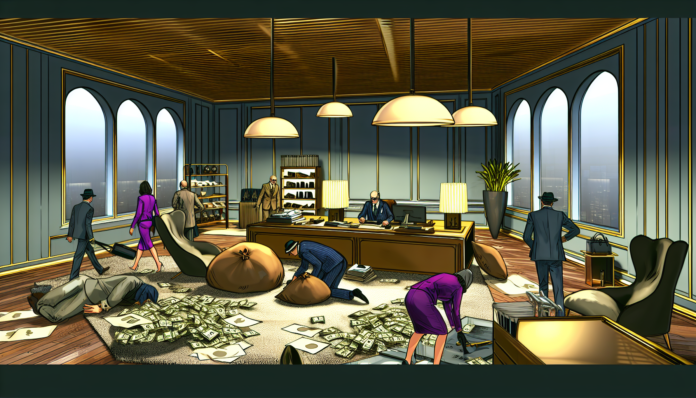Introduction
The intertwining of personal passions and political power has frequently produced scandalous outcomes in history. One of the most infamous figures in this narrative is Ferdinand Marcos, the former President of the Philippines, whose dictatorial regime was marred by issues of corruption, violence, and a personal life that exemplified the dichotomy of public authority and private misdeeds. Marcos ruled from 1965 to 1986, a period defined by martial law and rampant human rights abuses, but also by his high-society enchantments and romantic escapades.
In the context of the 1960s and 70s, prevailing moral attitudes were often conservative, with strict societal norms regarding marriage and sexuality. Yet, within the corridors of power, these norms frequently crumbled under the weight of ambition and desire.
The Scandal
One particular scandal that erupted during Marcos’s reign involved the lavish lifestyle and rumored affair of Imelda Marcos, his wife and the epitome of opulence. Imelda became notorious for her extravagant shopping sprees, which included acquiring over 1,000 pairs of shoes, while the nation suffered from widespread poverty. This excess only fueled speculation about the couple’s private lives, especially stories surrounding Imelda’s alleged affairs with high-ranking officials and celebrities.
Key events surrounding the Marcos scandal included:
- 1972: The declaration of martial law, ostensibly to stabilize the nation, provided a backdrop for increasing repression and corruption while also shielding the regime from scrutiny.
- 1975: The Philippine media, though tightly controlled, began to publish whispers of Imelda’s antics, including extravagant parties featuring international celebrities that blurred the lines between politics and personal indulgence.
The tabloids of the day were filled with sensational headlines, such as “Imelda’s Millionaire Lifestyle” and “Passion or Politics?” The scandal magnified as her public persona clashed sharply with the sobering political realities of the Philippines.
Key Quotes from the Time
-
“If we can feed our people, who cares how many shoes I own?” Imelda once said, capturing her dismissive attitude towards criticism during a time of national crisis.
- An opposition senator remarked, “While our country bleeds, they dance the macabre on the blood of every Filipino.”
Moral and Cultural Analysis
The response from Filipino society to the Marcos couple’s scandals was mixed. Many were appalled at their blatant disregard for the struggles of the poor, viewing Imelda’s extravagant lifestyle as a symbol of the ruling elite’s disconnect from the populace. The media, though state-controlled, found ways to play with this discontent, often using humor and satire even under censorship.
The consequences for the Marcos regime were dire. As the public grew increasingly aware of the glaring discrepancies between the rulers’ lifestyles and the citizens’ realities, dissent began to grow, leading to the eventual People Power Revolution in 1986, which ousted the Marcos family.
Had the same events occurred today, reactions would likely be even more amplified. The power of social media would allow for instant condemnation and mobilization against perceived injustices. The emphasis on transparency and accountability in contemporary politics would force leaders to contend with the intricacies of their personal lives alongside their public responsibilities, reshaping the narratives surrounding leaders like Marcos and his legacy.
How This Would Be Viewed Today
- Sensationalism: Today’s media would likely focus less on scandalous behavior and more on the implications of such conduct on governance, highlighting systemic issues in leadership.
- Social Activism: Modern audiences would be quicker to mobilize against political figures misusing their power, driven by digital platforms that facilitate grassroots organization and global discourse on morality in governance.
Ultimately, the personal lives of dictators like Ferdinand Marcos remind us how intertwined personal ambition and public authority can lead to both scandal and historical consequence, driven in part by the shifting sands of societal norms and cultural reactions.

